Welcome to Micromobility Pro, a bi-weekly publication which is part of The Micromobility Newsletter, where we deep-dive into the financials of micromobility companies and share exclusive insights tailored for professionals and members.
Contents
- About G-Bike
- 2024 Financial Performance
- Revenue Breakdown
- Cost Structure
- Cash Position & Debt Restructuring
- Product & Market Development
- Funding
- Conclusion
About G-Bike
Gbike is a South Korean micromobility company established in August 2017. It operates GCOO, a shared mobility platform offering bicycles and e-scooters, complemented by software development and sales.

Headquartered in Seoul’s Gangnam-gu district, the company has pursued an international growth strategy with subsidiaries in the United States (GBIKE USA Inc.), Thailand (Thai Personal Mobility), and Vietnam (Viet Personal Mobility Co., Ltd.). In late 2024, Gbike expanded into Ghana, marking its first African operation.
The company is controlled by CEO Yoon Jong-soo, who holds a 31.6% stake.
2024 Financial Performance
Gbike reported $58.3 million in revenue for 2024, a 40% increase from $41.7 million in 2023. Operating profit more than doubled to $6.96 million, while net profit rose to $2.82 million.
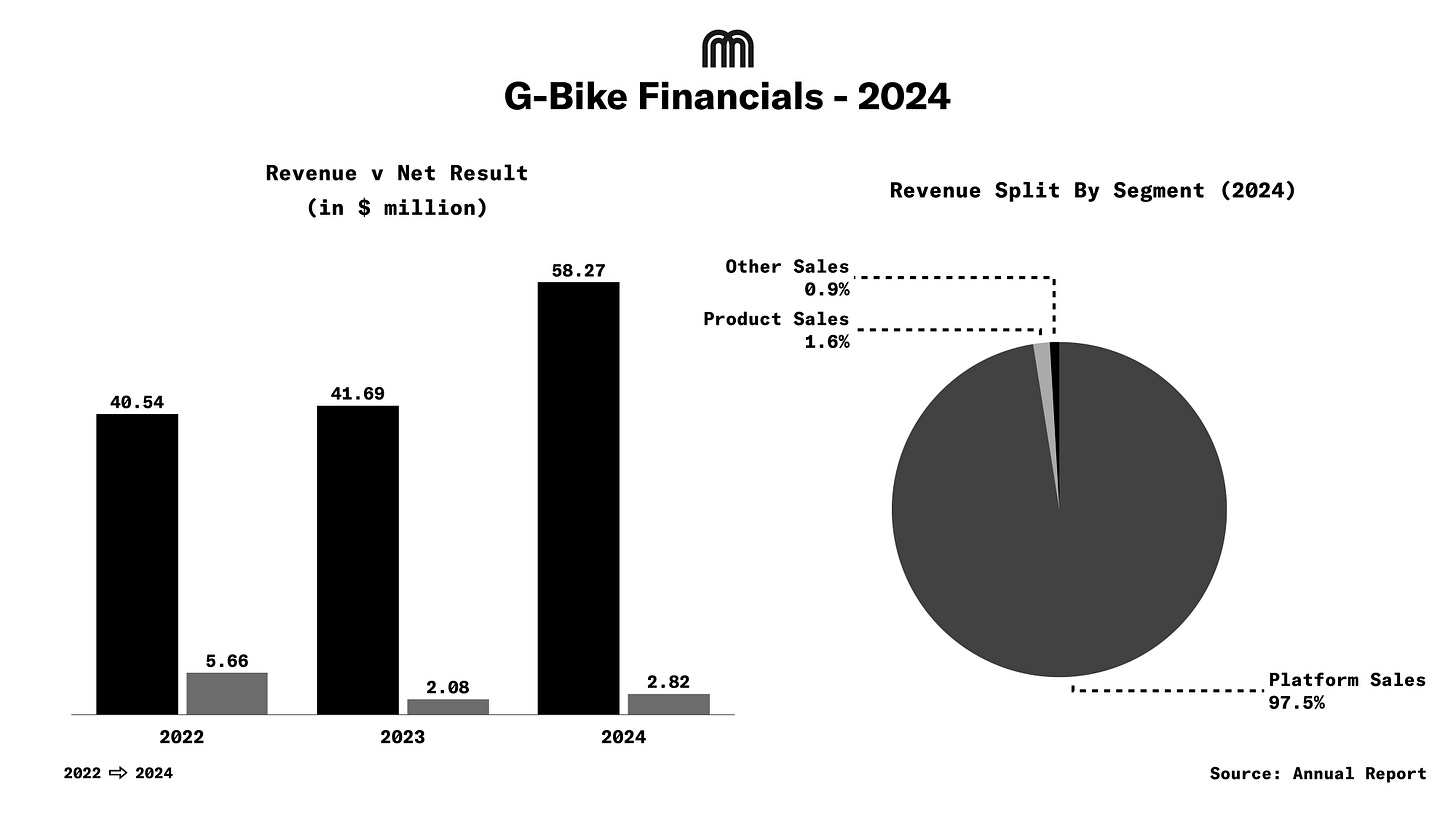
Part of the improvement came from a change in accounting policy. The company extended the useful life of its bicycles and batteries from four years to five, reducing annual depreciation by $1.6 million and boosting net income.
Around 97.5% of total revenue comes from rental services ($56.8 million), with a small contribution from product sales such as accessories or replacement parts ($1 million).
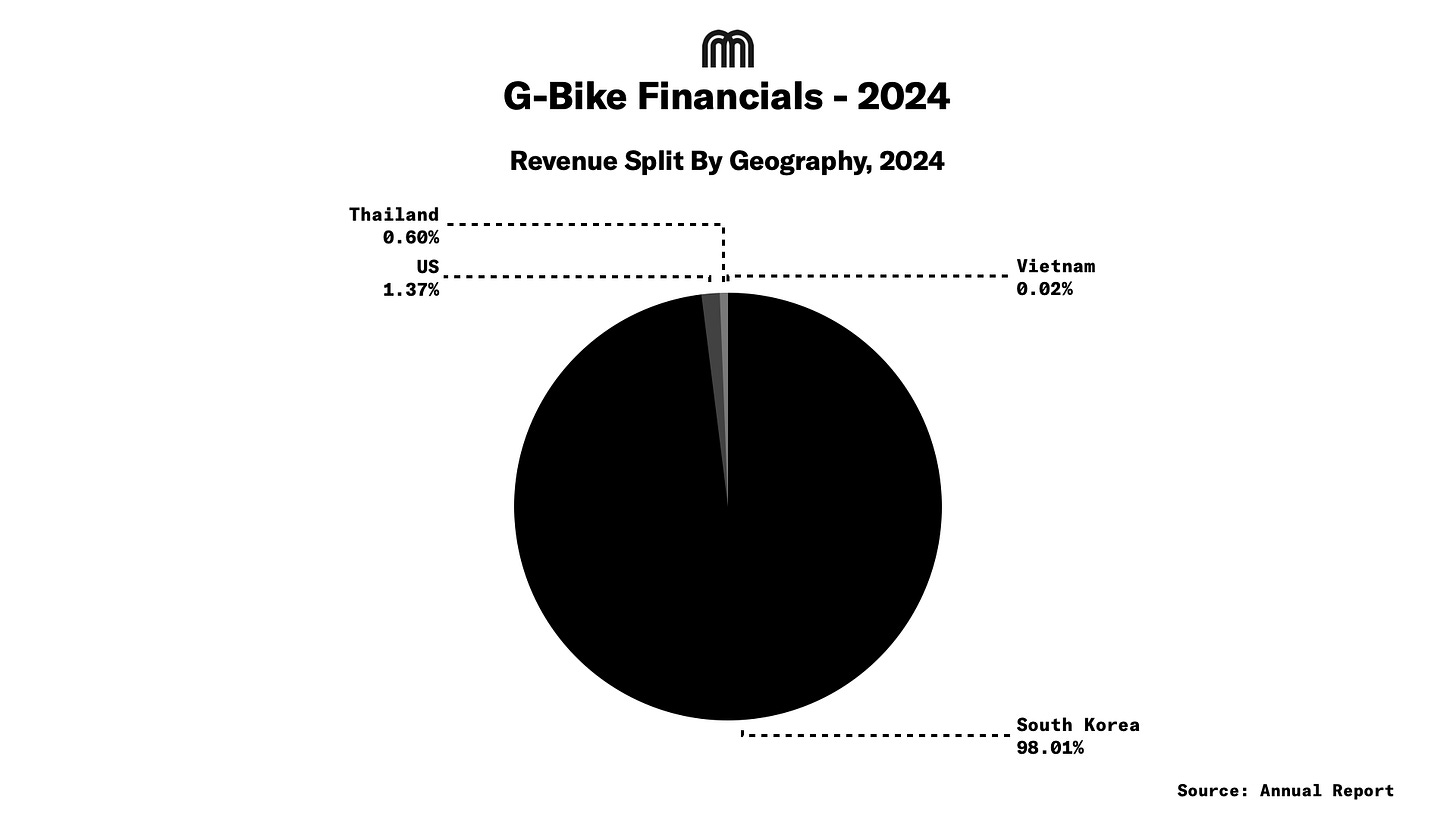
Domestic operations account for the majority of revenue. The U.S. subsidiary generated ~$0.8 million and the Thailand subsidiary ~$0.35 million. Other markets remain in early stages.
Cost Structure
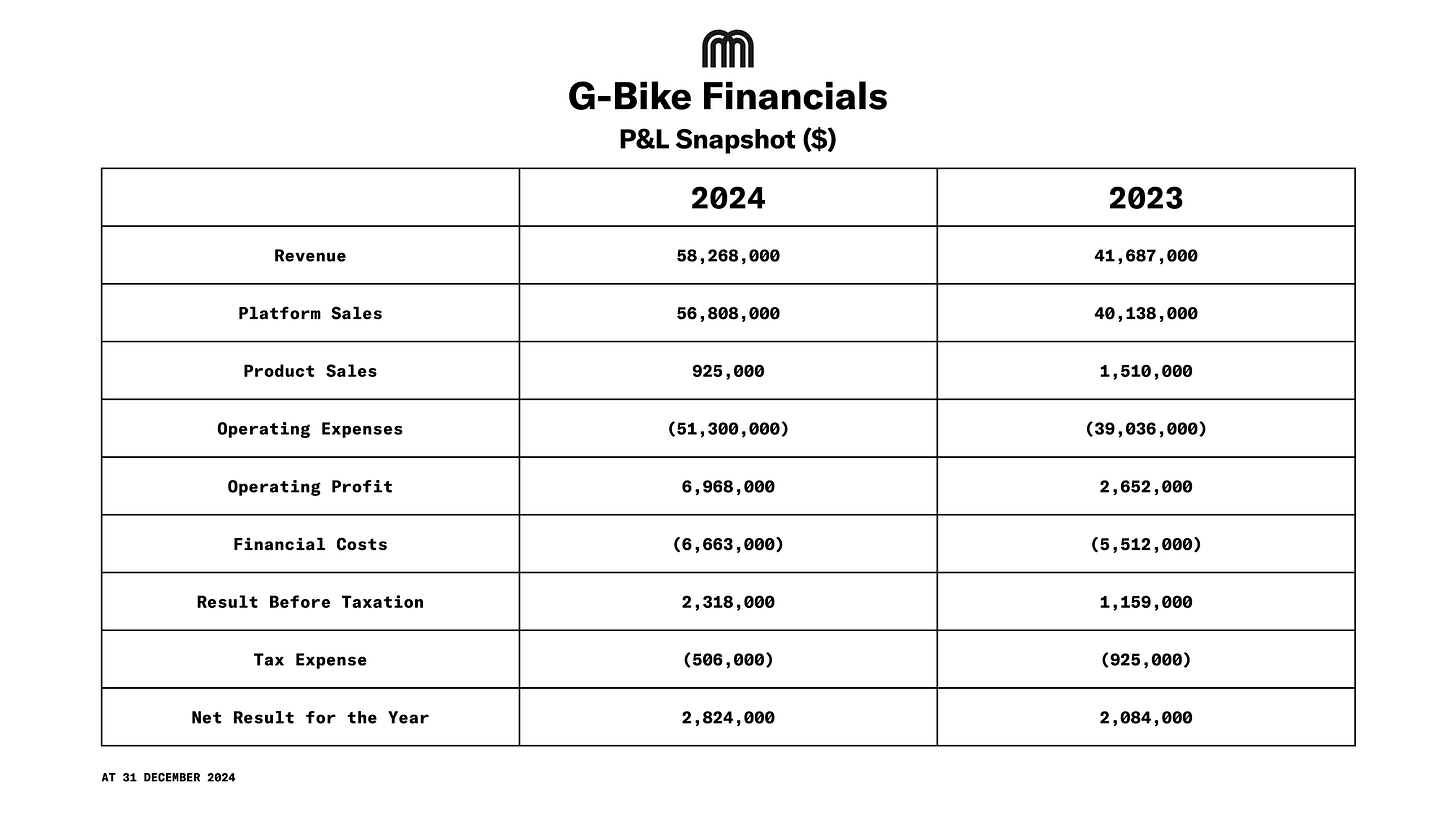
G-Bike’s cost structure is typical for an asset-heavy mobility platform, with significant fixed costs in depreciation and personnel.
- Major Cost Components (2024):
- Personnel Costs: The largest operational cash outflow, totaling $18.6 million. This is comprised of:
- Salaries: $16.0 million
- Retirement Benefits: $0.9 million
- Employee Welfare: $1.7 million
- Depreciation: A major non-cash charge of $18.6 million, related to the wear and tear of its rental fleet and right-of-use assets.
- Commissions Paid: $4.4 million, likely payments to partners or platform intermediaries.
- Supplies: $2.2 million for operational supplies.
- Personnel Costs: The largest operational cash outflow, totaling $18.6 million. This is comprised of:
Cash Position & Debt Restructuring
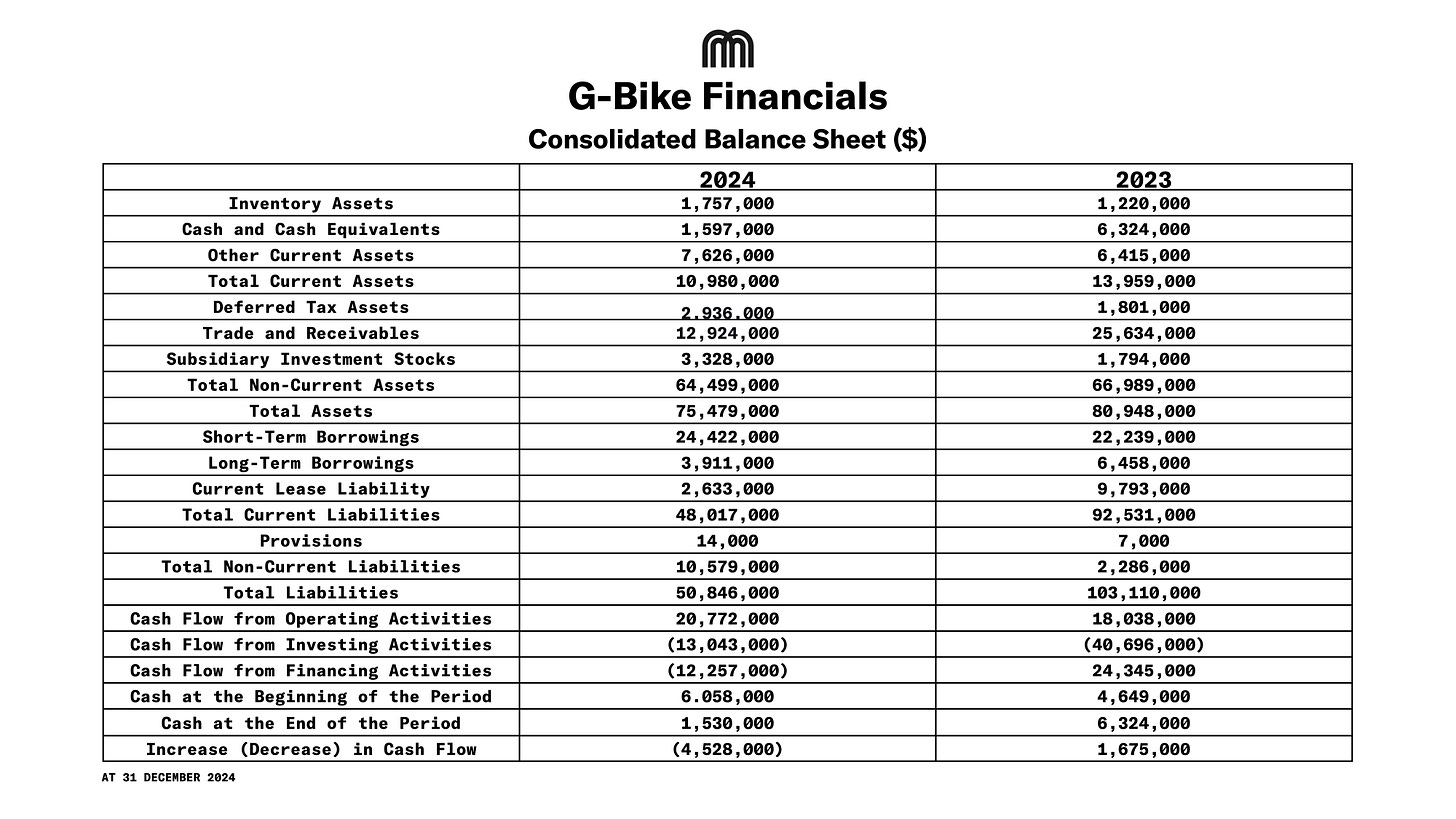
Total assets stood at $75.5 million at the end of 2024, down 6.7% from 2023. Current assets declined due to reduced cash holdings, while non-current assets remained stable at around $65 million.
Cash and cash equivalents fell sharply to $1.53 million from $6.06 million a year earlier. The drop occurred despite strong operating cash flow of $20.8 million, driven by $13 million in investment outflows and $12.3 million in debt repayments.
The company executed a large-scale restructuring in 2024 to stabilize its balance sheet. It converted $24 million of convertible preferred stock and $2.7 million of redeemable preferred stock into common equity.
Liabilities were reduced by more than half, falling from $103.1 million to $50.8 million. Total equity turned positive at $23.6 million, compared with a deficit of $21.4 million the previous year.
This restructuring improved the company’s debt ratio to 1.99 times, restoring solvency after several years of negative equity.
Product & Market Development
K2 Scooter

In 2024, Gbike developed and launched its proprietary K2 e-scooter designed specifically for shared mobility operations. The model features a swappable battery pack, improved durability, and enhanced safety. The K2 reduces long-term maintenance costs and forms the foundation of a planned Battery Sharing Service network. The company intends to introduce the K2 to the U.S. market in 2025.
TagRide Integration
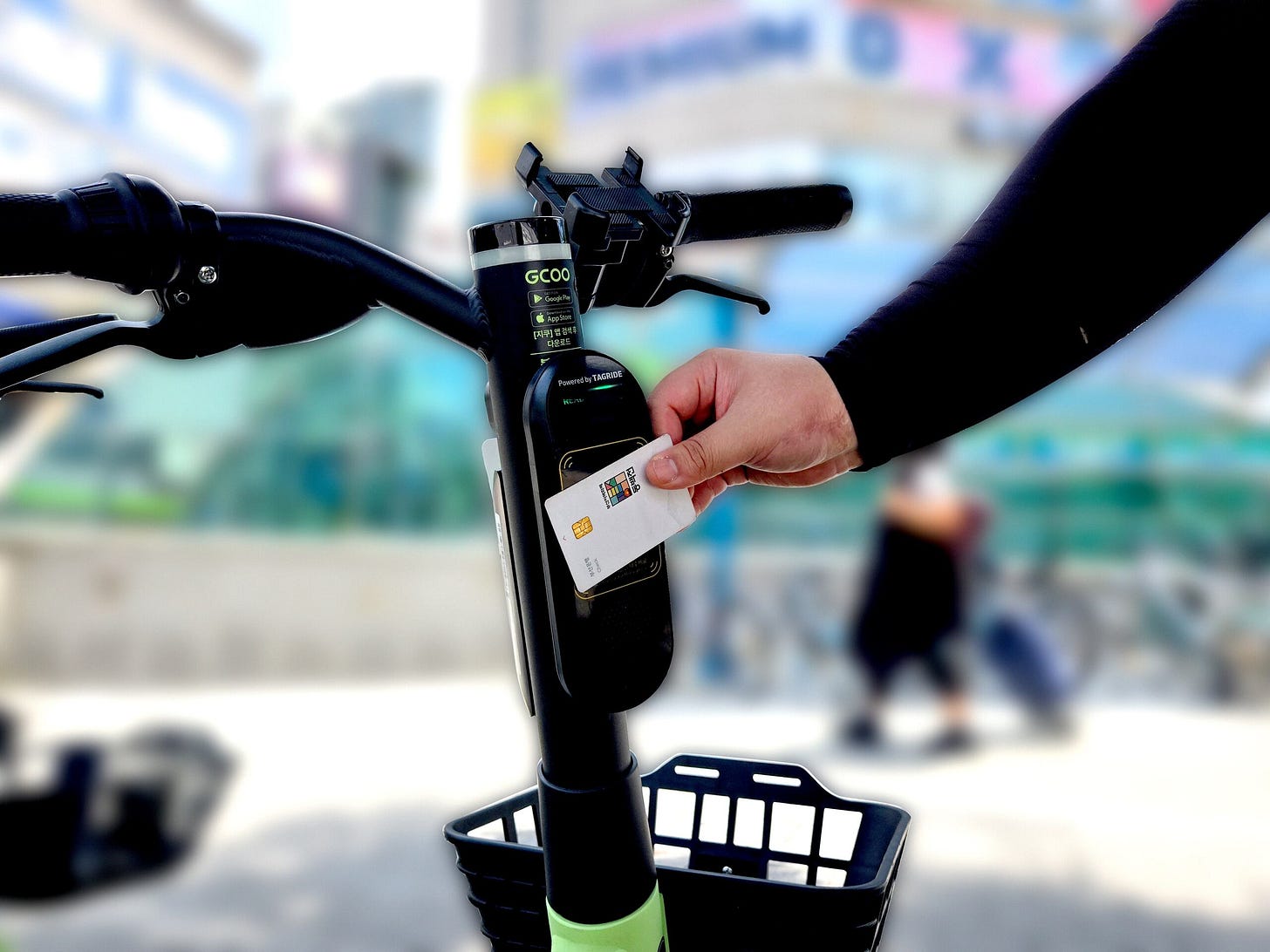
Gbike introduced TagRide in Busan, allowing users to unlock GCOO bikes using public transportation cards. The system applies transfer discounts, linking micromobility directly with public transit and positioning Gbike as part of the city’s integrated mobility network.
Global Expansion
Globally, the company continues to execute its expansion strategy. Having established operations in the United States, Thailand, and Vietnam, it also marked a strategic entry into the African market by launching services in Ghana in late 2024. While international subsidiaries are not yet profitable, they represent a growing footprint, with the company reporting over 270k overseas subscribers and $1 million in international sales for 2024.
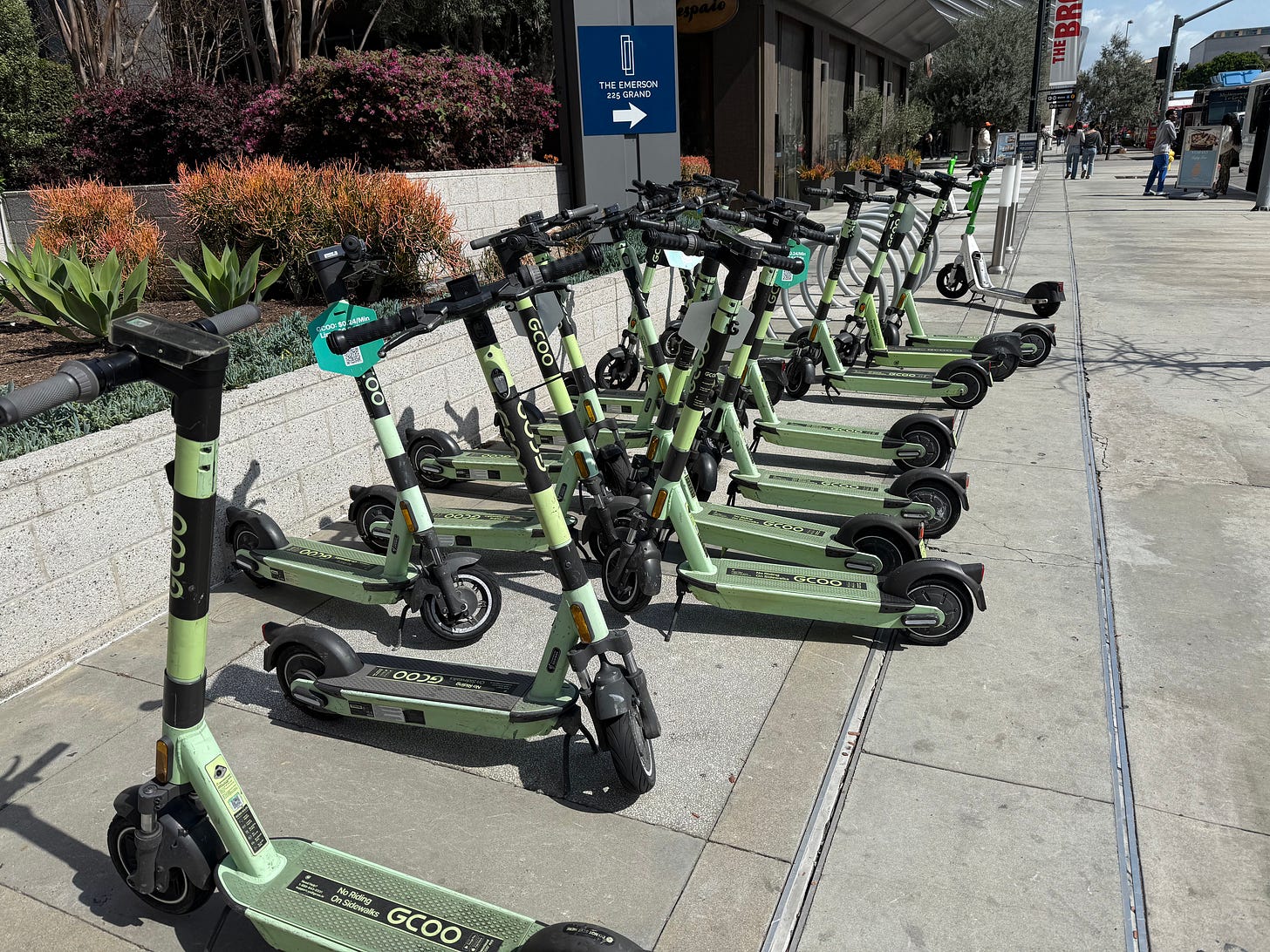
Funding
In December 2024, Gbike raised ~$8.7 million in a Series C round led by LB Investment with participation from BNK Venture Capital and other investors.
The funding will support export of the K2 e-scooter, development of a global cloud server system for integrated mobility management, and expansion of international subsidiaries. Securing new capital during a difficult investment climate indicates strong investor confidence in Gbike’s domestic performance and restructuring progress.
Conclusion
Gbike’s 2024 results mark a clear financial turnaround. The company increased revenue by 40%, doubled operating profit, and restored positive equity after years of balance-sheet pressure. Liabilities were reduced by more than half, and a new funding round provided additional growth capital.
The company now operates from a stable base but remains constrained by limited liquidity and early-stage international units. The priorities for 2025 are clear: strengthen cash reserves, sustain profitability from core operations, and scale the K2 hardware and TagRide integration beyond Korea.
If successful, Gbike could become one of the few profitable and globally active shared mobility companies to emerge from Asia’s crowded micromobility sector.

.svg)
%2Bcopy.jpeg)


.svg)



.png)

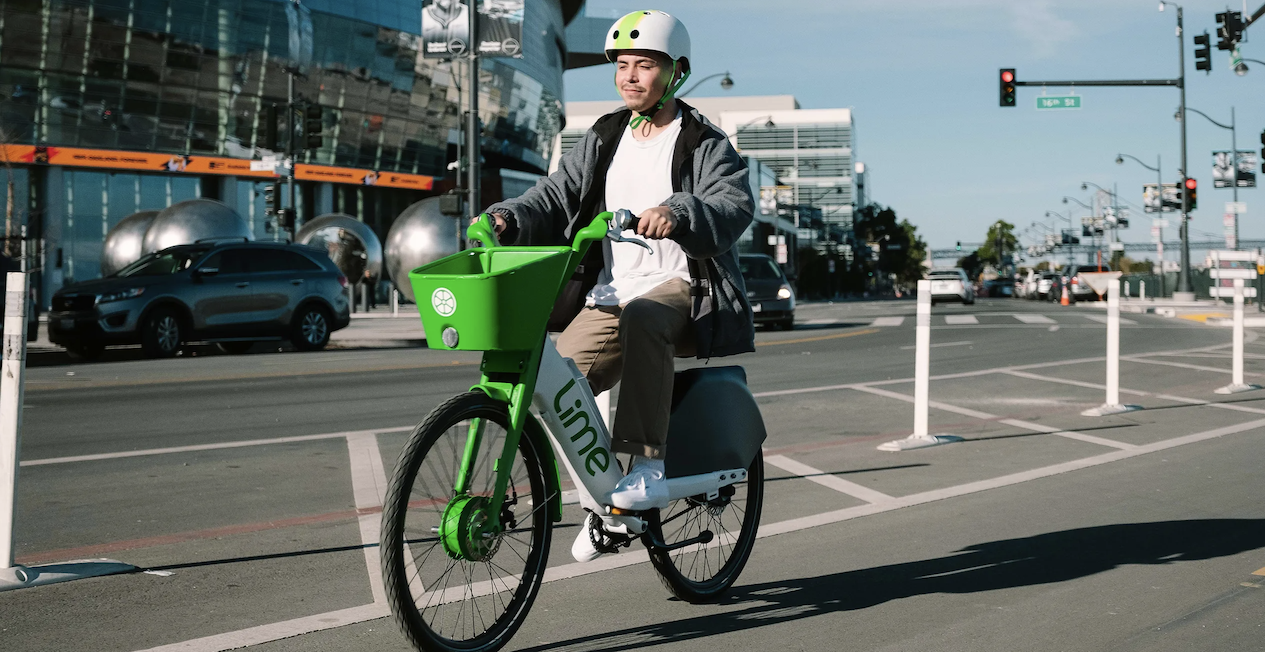




.png)



